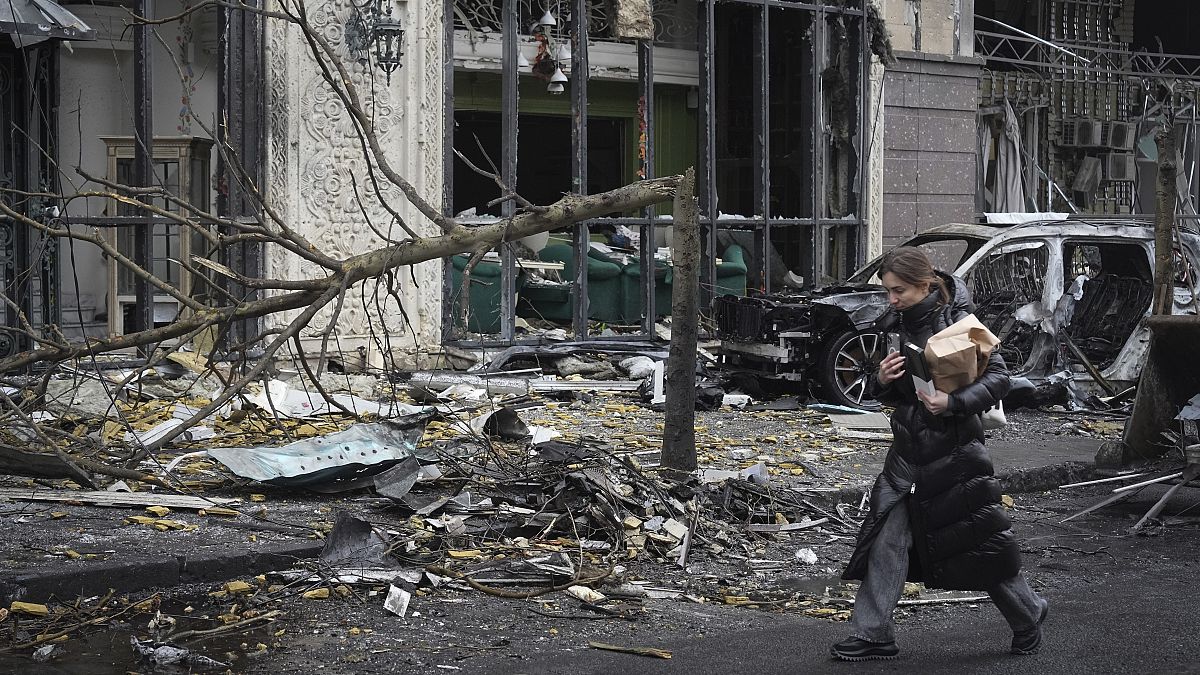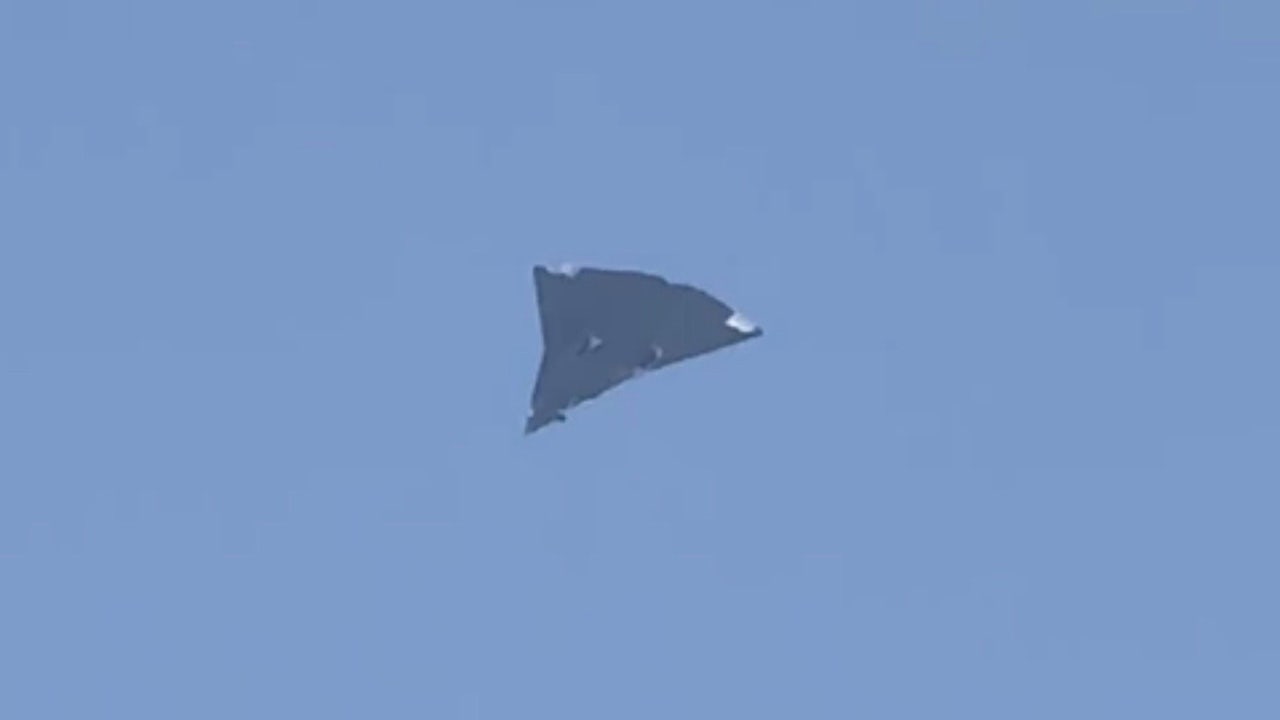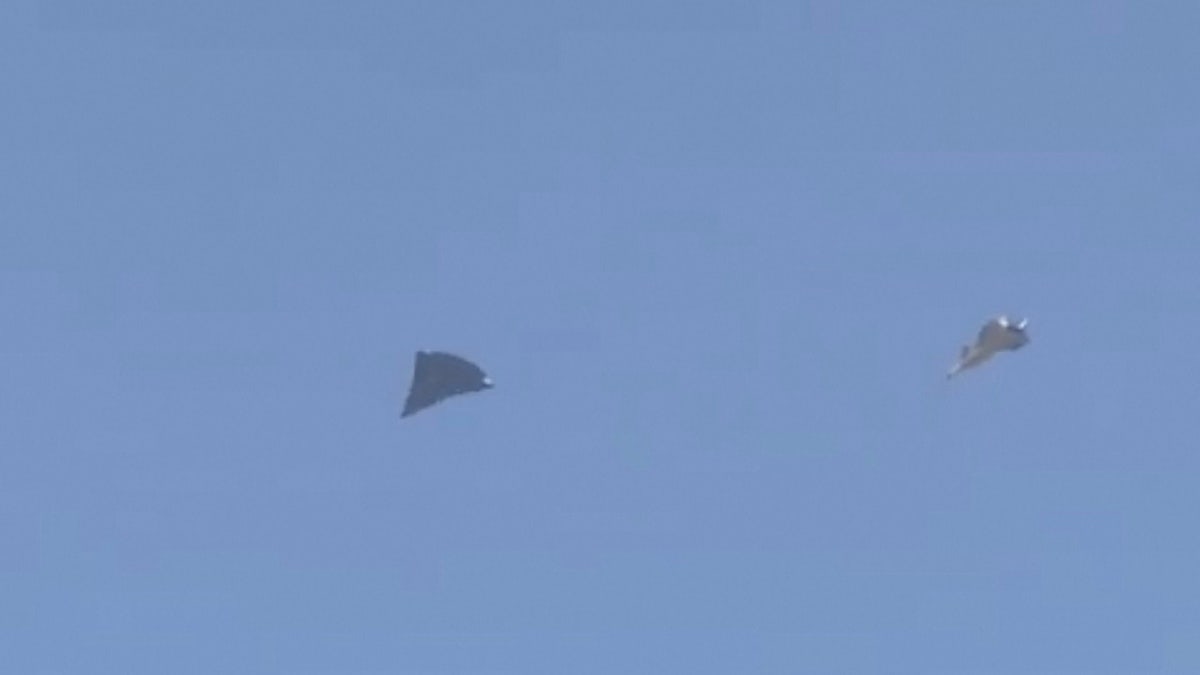World
Spain’s election dents Europe’s far right but much remains unanswered

The Spanish general election was expected to be a bellwether for the political direction of the European Union as a whole.
But Sunday’s inconclusive results offer more questions than answers, leaving Brussels scratching its head and wondering what’s next for the bloc’s fourth-largest member.
The final picture shows the conservative Partido Popular (PP), led by Alberto Núñez Feijóo, capturing the highest share of votes and parliamentary seats, closely followed by the socialists (PSOE) of incumbent prime minister Pedro Sánchez, who improved his 2019 performance in defiance of an acrimonious opposition campaign.
Feijóo’s unexpectedly disappointing performance (135 seats), and Sánchez’s surprising electoral resistance (122 seats) create a gridlock where no candidate is guaranteed a successful investiture, which requires a majority of 176 endorsements.
For Feijóo, the victory proved particularly bittersweet as his chances of becoming prime minister appear borderline chimerical: under the best possible scenario, his formation could count on the support of the 33 lawmakers from the far-right Vox and just two representatives from like-minded regional parties.
Meanwhile, Sánchez seems to be in a slightly less ominous position as he could gather the 31 votes of left-wing Sumar, its current partner in the ruling coalition, as well as the backing of Basque, Catalonian and Galician parties, which advocate various degrees of independentism from the central government and are poised to make serious demands in exchange of their “yeses.”
Adding to the drama is Junts, the party of Carles Puigdemont, the separatist leader still wanted by the Spanish justice over his role in the 2017 independence referendum in Catalonia, which has emerged as the ultimate kingmaker.
Experts and commentators did not wait long to raise the dreaded spectre of repeat elections as the likeliest denouement of the political crossroads.
“Even if the arithmetic in the Parliament is a bit complicated, Sánchez actually retains his options to rebuild his left-wing ruling coalition,” says Matías Pino, an analyst at Europe Elects, a poll aggregator that tracks elections in every European country.
“If Sánchez doesn’t succeed, the next option could be a re-run. If that were to happen, I don’t think the Partido Popular will have any chances of governing.”
A far-right setback
Although predicting what comes next is virtually impossible at this moment in time, a few clear-cut conclusions can be drawn from Spain’s nail-biting race.
On the one hand, it brings a great sense of relief to the Party of European Socialists (PES), which badly needed to hold its ground in Spain after a series of electoral misfortunes that threatened to diminish its political relevance.
On the other hand, it pours a bucket of cold water on the steady rise of far-right parties seen in recent months across Europe. The upward trend can be traced back to the popular contestation against vaccine mandates and lockdown restrictions during the COVID-19 pandemic, a discontent that further escalated with Russia’s invasion of Ukraine, the energy crisis, record-breaking inflation and new migration flows.
Far-right parties have exploited these factors to amplify their traditional narratives of national decline, economic anxiety and personal rancour, which they believe can push voters towards a hard-line, uncompromising type of leadership.
The strategy gradually paid off.
In September, Ulf Kristersson was named prime minister of Sweden after striking a confidence-and-supply with the nationalists Sweden Democrats. A few weeks later, Giorgia Meloni led her party Fratelli d’Italia, which has neo-fascist roots, to a resounding victory and formed the most hard-right Italian government since World War II. Then, in April, the populist Finns Party entered the conservative coalition of Petteri Orpo, moving Finland sharply away from the progressive years of Sanna Marin.
In parallel, the Freedom Party of Austria (FPÖ) and Alternative for Germany (AfD), both considered to be among the most radical groups in Europe’s far-right spectrum, began a firm advance in opinion polls, causing alarm among mainstream parties.
All the pieces seemed to be perfectly placed for Vox and its leader, Santiago Abascal, to join the victorious ranks of their colleagues.
But then, the tide turned.
Vox severely under-performed on Sunday, falling from 52 to 33 seats and shedding more than 600,000 votes compared to the 2019 elections. The debacle immediately dented Abascal’s potential as a junior partner for a Feijóo-led coalition as PP and Vox failed to amass the necessary 176 votes.
“Spanish society is slightly leaned towards the centre-left and is more progressive than other countries in Eastern, Southern and even Western Europe, where the far-right has made inroads,” Matías Pino said in an interview. “In principle, Spain, together with Ireland and Portugal, countries where the right has not grown that much, remains an exception (in Europe) as it limits Vox’s chances of coming into government.”
Analysts had seen the possible PP-Vox accord as the prelude to a wider collaboration between the European People’s Party (EPP) and the European Conservatives and Reformists (ECR) group ahead of the 2024 European elections, a possibility that has been fuelled by representatives on both sides.
It’s still unclear what effect Spain’s election will have on this untested idea: the country might end up being a rule-breaker rather than a deal-breaker.
Despite sharing the ECR label at the European level, Vox cannot be considered a conventional far-right party because its central theme is the conflict of the Spanish identity “with itself,” rather than the opposition against “the outsider,” says Camino Mortera-Martínez, head of the Brussels office at the Centre for European Reform (CER).
“What happened with Vox cannot be extrapolated to other European countries,” Mortera-Martinez told Euronews. “We cannot go and say: ‘Now that the far right has been stopped in Spain, we will see a reaction wave against the far right in other corners of Europe.’ Because here we’re talking about different kinds of far-right, which did not come from the same place and are not heading in the same direction.”
Presidency, interrupted
A protracted stalemate in Spain, a country with a GDP of €1.3 billion and a population of 47 million people, was always going to be a headache for Brussels, where proposed laws can be easily stalled by internal turmoil in big-sized member states.
But in the most unfortunate of timings, Spain happens to be holding the six-month rotating presidency of the EU Council, one of the bloc’s co-legislators. Although the position lacks executive powers as such, it grants the selected country a privileged role to set the agenda, host ministerial meetings, steer negotiations and draft compromise texts that can please everyone around the table.
Intent on making the occasion a showcase for his progressive policies, Sánchez refused to delay the Spanish turn when he called snap elections and insisted the presidency would go ahead according to the plan.
The big EU moment that Sánchez envisioned for his country looks now increasingly dim.
A caretaker government with a limited margin for decision-making guided by a prime minister fully absorbed with securing the votes of regional parties or, worse, mounting a campaign for repeat elections will no doubt struggle to keep its attention on Brussels at a crucial time when political impetus is urgently needed.
“What might make Brussels worry is the fact that Spain will be, indeed, distracted with its domestic politics during the Council’s rotating presidency,” Mortera-Martínez said.
“But I also believe that Spain has always proven to be very diligent thanks to its corps of civil servants who have been working really hard on the presidency and will ensure a certain degree of continuity in the face of a caretaker government.”
Time is of the essence. Before going into 2024 electoral mode, the EU institutions need to wrap up a to-do list of pending legislation, such as an overhaul of the electricity market, a world-first attempt to regulate artificial intelligence, a contentious bill to restore degraded habitats, and the hard-fought reform of the bloc’s fiscal rules.
None of these files are going to be easy to conclude due to their technical complexity, far-reaching implications and strong divergences between member states, making indispensable a reliable and dedicated direction at the helm of the EU Council.
“Brussels will miss the voice of one of the EU’s most important members in population and size, and also, let’s just say it, in terms of social progressivism: Spain is a country that has a lot to offer when it comes to migration, climate legislation, energy, relations with Latin America and other topics that are going to be key,” Mortera-Martínez said.
“Missing the Spanish voice will be a pity, I think, both for Brussels and Madrid.”

World
US expected to announce $1.25bln military aid package for Ukraine

The large package of aid includes a significant amount of munitions, including for the National Advanced Surface-to-Air Missile Systems and the HAWK air defence system.
The United States is expected to announce that it will send $1.25 billion (€1.2 billion) in military assistance to Ukraine, US officials announced on Friday as Joe Biden pushes to get as much aid to Kyiv as possible before he leaves office in January.
The large package of aid includes a significant amount of munitions, including for the National Advanced Surface-to-Air Missile Systems and the HAWK air defence system.
It will also provide Stinger missiles and 155 mm and 105 mm artillery rounds, officials said.
The officials, who said they expect the official announcement to be made on Monday, spoke on condition of anonymity to provide details that have not yet been made public.
The new aid package comes as Russia launched a barrage of attacks against Ukraine’s power facilities in recent days, although Ukraine has said it intercepted a significant number of the missiles and drones.
Russian and Ukrainian forces are also still in a bitter battle around the Russian border region of Kursk, where Moscow has sent thousands of troops from North Korea to help reclaim territory taken by Ukraine.
Earlier this month, senior defence officials acknowledged that the Defence Department may not be able to send all of the remaining $5.6 billion (€5.3 billion) in Pentagon weapons and equipment stocks passed by Congress for Ukraine before President-elect Donald Trump is sworn in.
Trump has long been critical of the amount of military aid Washington has provided to Kyiv, raising fears that that flow could stop when he re-enters the White House.
He has also talked about getting some type of negotiated settlement between Ukraine and Russia, saying on the presidential campaign trail that he could end the almost three-year war “in one day”.
But many US and European leaders are concerned that that could result in a poor deal for Ukraine, including the loss of some territory, and they worry that he won’t provide Ukraine with all the weapons funding approved by Congress.
The aid in the new package is in presidential drawdown authority, which allows the Pentagon to take weapons off the shelves and send them quickly to Ukraine.
Officials have said they hope that an influx of aid will help strengthen Ukraine’s hand, should Zelenskyy decide it’s time to negotiate with Moscow.
One senior defence official said that while the US will continue to provide weapons to Ukraine until 20 January, there may be funds remaining that will be available for the incoming Trump administration to spend.
According to the Pentagon, there is also about $1.2 billion (€1.15 billion) remaining in longer-term funding through the Ukraine Security Assistance Initiative, which is used to pay for weapons contracts that would not be delivered for a year or more.
Officials have said the administration anticipates releasing all of that money before the end of the calendar year.
If the new package is included, the US will have provided more than $64 billion (€61 billion) in security assistance to Ukraine since Russia invaded in February 2022.
World
China's CATL launches EV chassis, flagging safety as top selling point

World
SEE IT: China stuns with maiden flight of sixth-generation aircraft

China appears to have conducted the maiden flight of its new sixth-generation fighter aircraft, marking a significant milestone in the ever-evolving landscape of fighter jets.
Video and photos from social media showed the previously unseen aircraft conducting a daytime test flight, alongside a two-seat Chengdu J-20S fighter, which served as a chase plane.
The planes were soaring high in Chengdu, Sichuan, China on Dec. 26, which is notably the birthday of the founding father of the People’s Republic of China, Mao Zedong.
CHINA UNVEILS WORLD’S LARGEST AMPHIBIOUS WARSHIP
Chinese military aircraft fly in Chengdu, Sichuan, China, in this screengrab taken from a social media video released on December 26, 2024. (Social Media/via REUTERS)
Photos and video of the tailless Chinese aircraft came as the U.S. continues to work on developing its Next Generation Air Dominance (NGAD) fighter jet.
The NGAD fighter jet is intended to replace the F-22 Raptor, a fifth-generation stealth combat aircraft that has been in service with the U.S. Air Force since the early 2000s.
CHINA WARNS US TO STOP ARMING TAIWAN AFTER BIDEN APPROVES $571M IN MILITARY AID
Fifth generation aircraft incorporated stealth technology, with the sixth generation aircraft promising further advancements.

Chinese military aircraft fly in Chengdu, Sichuan, China, in this screengrab taken from a social media video released on December 26, 2024. (Social Media/via REUTERS)
This new aircraft is the latest in a series of milestones for China’s aviation. At the Zhuhai Airshow, China unveiled the J-35A fifth-generation fighter jet and the J-15T fighter.
Fox News Digital has reached out to China’s Ministry of Defense for comment.
-
/cdn.vox-cdn.com/uploads/chorus_asset/file/24924653/236780_Google_AntiTrust_Trial_Custom_Art_CVirginia__0003_1.png)
/cdn.vox-cdn.com/uploads/chorus_asset/file/24924653/236780_Google_AntiTrust_Trial_Custom_Art_CVirginia__0003_1.png) Technology1 week ago
Technology1 week agoGoogle’s counteroffer to the government trying to break it up is unbundling Android apps
-

 News1 week ago
News1 week agoNovo Nordisk shares tumble as weight-loss drug trial data disappoints
-

 Politics1 week ago
Politics1 week agoIllegal immigrant sexually abused child in the U.S. after being removed from the country five times
-

 Entertainment1 week ago
Entertainment1 week ago'It's a little holiday gift': Inside the Weeknd's free Santa Monica show for his biggest fans
-

 Lifestyle1 week ago
Lifestyle1 week agoThink you can't dance? Get up and try these tips in our comic. We dare you!
-
/cdn.vox-cdn.com/uploads/chorus_asset/file/25672934/Metaphor_Key_Art_Horizontal.png)
/cdn.vox-cdn.com/uploads/chorus_asset/file/25672934/Metaphor_Key_Art_Horizontal.png) Technology4 days ago
Technology4 days agoThere’s a reason Metaphor: ReFantanzio’s battle music sounds as cool as it does
-

 Technology1 week ago
Technology1 week agoFox News AI Newsletter: OpenAI responds to Elon Musk's lawsuit
-

 News5 days ago
News5 days agoFrance’s new premier selects Eric Lombard as finance minister

















